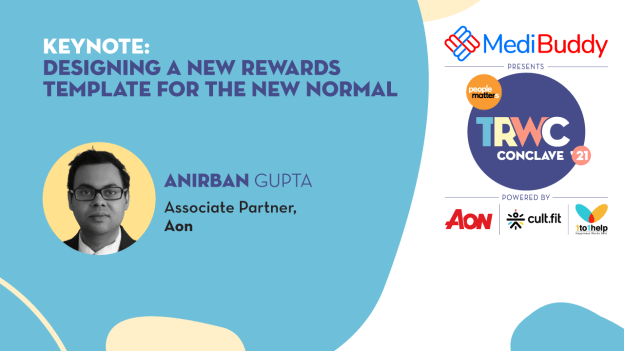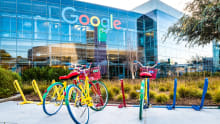How do we go about designing a new system of rewards for the new normal?

The agenda behind building a new rewards strategy fundamentally stems from the need to counter attrition and to deliver on a holistic positive employee experience which caters to their growth, development and wellbeing. In two important sessions at the People Matters Total Wellness and Rewards Conclave 2021, key leaders from AON- Anirban Gupta, Associate Partner and Nitin Sethi, Chief Executive Officer, Human Capital Solutions along with Ravi Kyran, CHRO, Bajaj Auto Ltd. and Harshvendra Soin, Global Chief People Officer & Head of Marketing, Tech Mahindra shared critical insights on what the future of work looks like and the fundamental values that should drive any organisation looking to redesign themselves and their wellness strategy to attract and retain more talent.
A key point to start this article off with as shared by Ravi, “We have to do what is right for the business and right for the people. That has to be our guiding principle.” He also touches upon the resilience of the workforce and how having weathered it reflects the deep strength that persists within organisations and how wellness has to be an important emphasis moving forward.
Hiring trends in the new normal:
Anirban in his keynote address also emphasised on the importance of wellness which needs to take a holistic approach by benefiting individuals both professionally and personally, that motivates them and aids in their transformation. This is the only way one can have a positive effect on productivity and morale. The future of work has made considerable demands on the workplace; in building a hybrid workplace, employees need flexibility, strong cultural ethos and a space for collaboration. Culture will be a unique EVP that will have significant implication on talent, adds Nitin.
Harshvendra also highlights two significant changes: one being outcome becoming more important than output, and skills becoming more important than degrees. A clear shift in the way rewards are managed can be witnessed and the advice he offers to leaders is the personalization and segmentation of talent along with talent management in real time to keep up with the rapid pace of transformation.
Countering attrition through innovative strategies:
With organizations reporting significantly higher rates of attrition than the past, there is a localised surge of demand across sectors for talent that is more transformative and can drive organisations into the next wave of growth, highlights Anirban. Along with culture tied diminishing and a stressful work environment in places, employees tend to move towards organisations that will offer them higher pay. But the question then remains: can pay be the anchor of driving long term retention or do we need to rethink?
Transformation today is fueled by technology and consumer expectations which is disrupting business models. Covid has also accelerated the digital economy which demands for greater accountability, collaboration and customisation. In light of this, what will propel organisations forward is generalised specialists. They are the ones who will apply their specialised knowledge holistically across different areas within the organisation. As important as specialisation may be, we have to see how it fits in to solve the larger problems of the organisation for growth, collaboration and to drive business.
Final takeaway:
There is a massive demand-supply challenge when it comes to talent as is already seen by the high rates of attrition. An organisation’s ability to drive agility, kickstart growth and deliver impact rests on the unique mix of superior technical ability and superior behavioural capability among talent today.
Organisations that are re-thinking about the manner in which their jobs are designed are likely to attract this talent. They are set on making their organisations work more end to end and stressing upon empowerment of the worker driven by accountability and ownership. They are the ones driving better and faster business performance. Talent has to be offered continuous learning opportunities as well as opportunities for growth and development along with great quality of work. To put it simply, as we envision the future of work and a new rewards strategy, we also have to engage in a fundamental change in job design.










